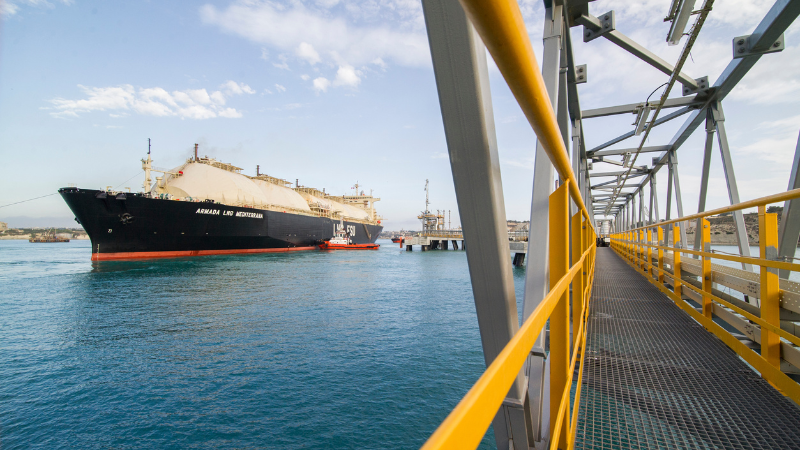Over 1,000 Maltese citizens and 14 NGOs have signed a letter calling on the government to ensure no public money goes to the controversial Melita pipeline project that will lock the country into fossil fuel reliance and is linked to the assassination of Daphne Caruana Galizia, just days before a crucial vote.
The letter was sent last week to Prime Minister Robert Abela, Energy Minister Miriam Dalli, Finance Minister Clyde Caruana, and Members of the European Parliament that sit on the Industry, Research and Energy Committee and have the power to reject the inclusion of the project on a list of candidates to receive EU funds.
“Corruption, assassination, and environmental destruction are keywords associated with the Electrogas power station and the Melita TransGas pipeline that the Malta Government is proposing,” the Daphne Caruana Galizia Foundation and Friends of the Earth said in a statement.
On 12 February, MEPs will review and assess the project and decide if it should be included on a list of Projects of Common Interest. This would make it eligible for EU taxpayer funds, crucial for the project’s realisation.
The signatories of the letter object to the project because it will lock the country into fossil fuel reliance at a time when the rest of Europe is attempting to diversify and seek greener options.
“It uncovers the unsettling reality of the Electrogas project and the proposed Melita TransGas Pipeline, which will lock Malta into burning fossil fuels for the next 40 years. A thousand citizens and representatives of 14 NGOs signed the open letter asking decisionmakers to ensure that no public money goes to this fossil fuel project,” the organisations said.
The Melita TransGas Pipeline is a 159km proposed pipeline from Delimara in Malta to Gela in Italy. It would transport gas, renewable gasses and hydrogen from Italy to Malta, with a price tag of some €400 million.
Although the EU’s Trans-European Networks for Energy (TEN-E) rules place emphasis on renewable energies and electricity interconnections, Malta obtained a derogation, and the project was included on the 5th EU list of projects of common interest (PCI) in 2022, making it eligible for EU funds towards its price tag.
It was included on the 5th list and is now set to be considered for the 6th list.
Another significant bone of contention with the project is clauses in the deal between Electrogas and the government that mean that if the project commenced, ultimate beneficial owners of the power plant, including Yorgen Fenech, the man currently in prison and on trial accused of masterminding Caruana Galizia’s murder, would receive millions of euro in compensation.
“Corruption in the Electrogas project was a core part of Daphne Caruana Galizia’s investigations, which, according to the findings of the public inquiry into her assassination, possibly motivated her murder,” the organisations said.
Matthew Caruana Galizia, Daphne’s son, said: “The European Union and Malta risk not only rewarding the alleged killer of Daphne Caruana Galizia but also her murder itself.”
Electrogas deal
The controversial Electrogas deal was struck with the help of ex-minister Konrad Mizzi, ex-chief of staff Keith Schembri, and disgraced former prime minister Joseph Muscat.
Just months after the Labour Party came to power in 2013, a major public contract was awarded to a consortium of companies, including Fenech’s and Azerbaijani State energy company SOCAR.
The Auditor General raised concerns over several irregularities, and investigative journalists then discovered that state energy company Enemalta would pay twice the market rate for natural gas through the deal, giving SOCAR at least $40 million in profit.
Furthermore, through a company called 17 Black, Fenech was set to make payments of €150,000 a month to Panama companies owned by Mizzi and Schembri.
Caruana Galizia was investigating the Electrogas deal and those involved in it at the time of her assassination.
The European Commission has so far resisted calls to drop the project, insisting it has rigorous checks and balances in place to ensure EU funds are not misused. However, the project has remained languishing on the list for several years with no further progress noted.













Malta is surrounded by sea currents that are continuous and harvest-able with new technology developed and under test by the EU. There are surface sea currents between Malta and Sicily that can be used. This is not like wind power , that is not continuous and neither dependable . The latest technology under test generate 100MW per unit .